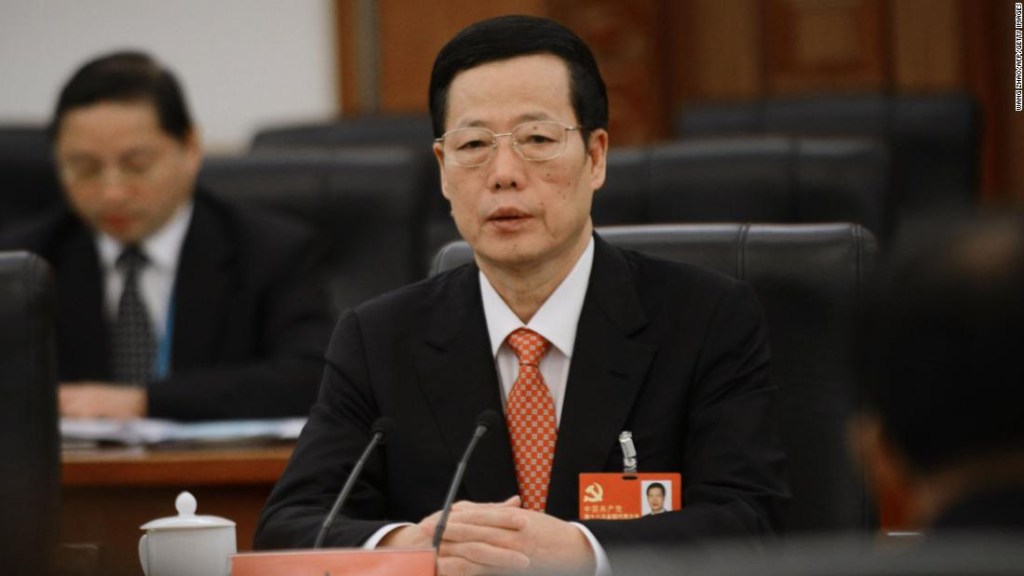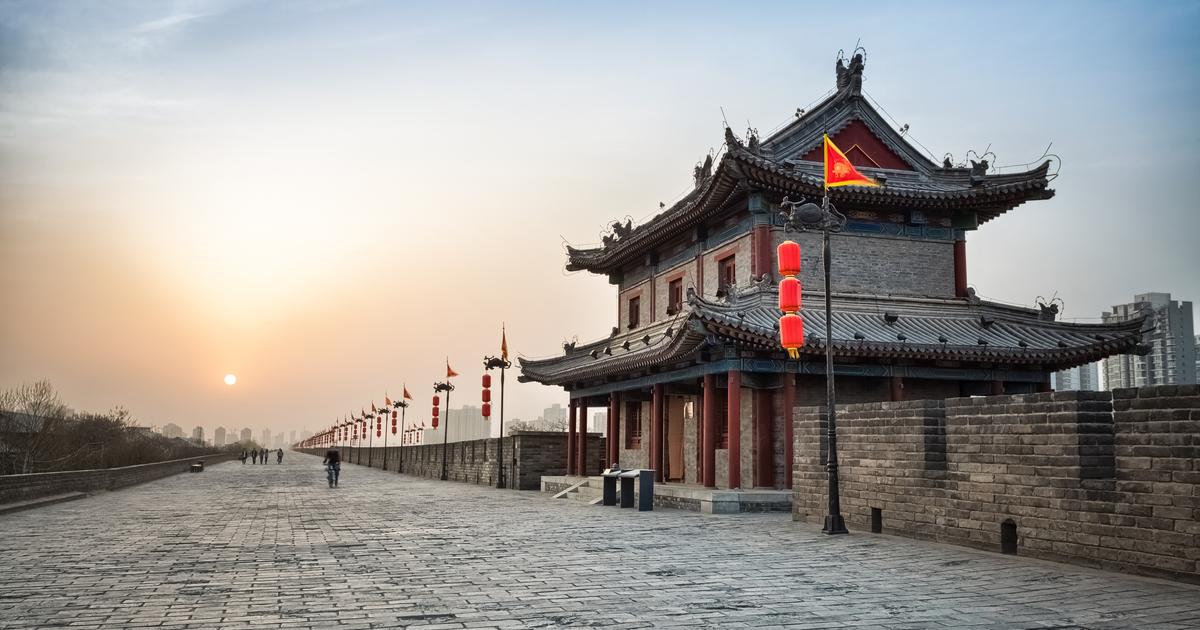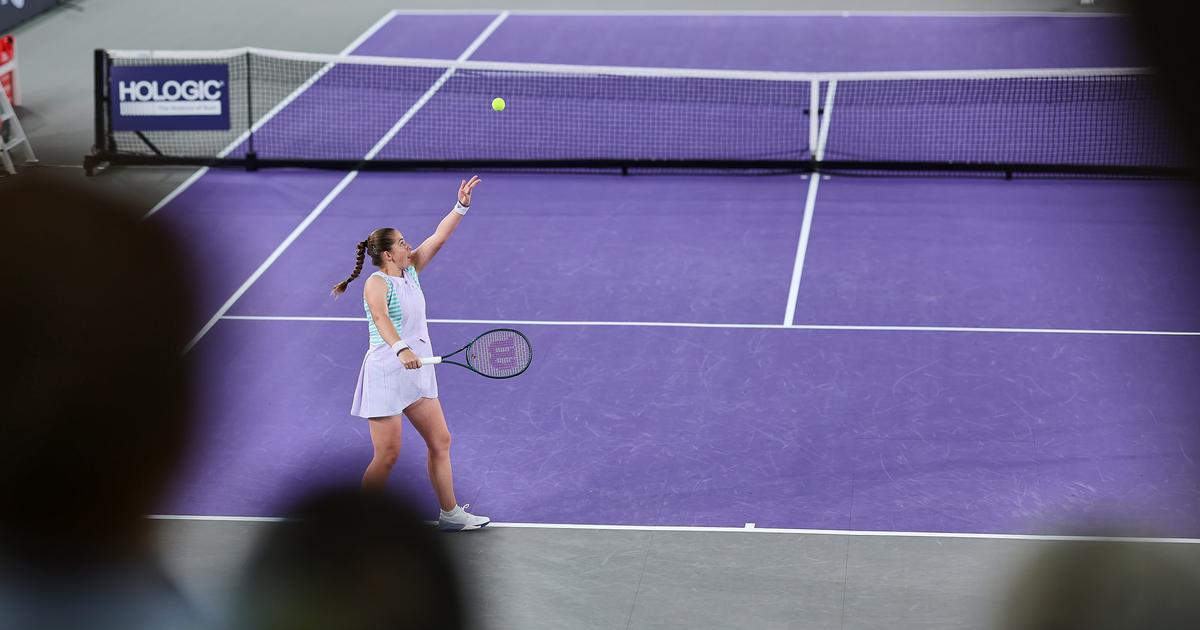This is Djokovic's view on the Peng Shuai case 2:07
Hong Kong (CNN) -
The women's professional tennis tour just ended with China.
But within China, there is no news on the decision, no public discussion as to why, and no response from Chinese tennis fans.
In contrast to the general silence at home, China's government-controlled media lashed out at the Women's Tennis Association (WTA) on Twitter - a blocked platform in China - accusing the organization of "riding an exaggerated spectacle "and" supporting the West's attack on the Chinese system. "
Who is Zhang Gaoli?
The man at the center of tennis player Peng Shuai's #MeToo accusations
The two seemingly contradictory approaches reflect the extreme sensitivity associated with the WTA decision within China, and the explosive #MeToo accusation that prompted it.
When Chinese tennis star Peng Shuai publicly accused former Vice Premier Zhang Gaoli of sexual assault on social media on November 2, the immediate response from the authorities was to silence her and censor even the vaguest allusion to the allegation.
But while that might have worked domestically, it only served to inflame reaction abroad.
Peng's prolonged disappearance from public view prompted the world's biggest tennis stars to demand answers about his whereabouts.
In response, state media employees posted a series of "proof of life" photos and videos of Peng on Twitter, while authorities continue to censor all mention of her at home.
advertising
IOC gives encouraging news on Peng Shuai 1:01
The same approach was applied again on Thursday, when the WTA announced an immediate suspension of all tournaments in China, including Hong Kong, over Beijing's silencing of Peng's sexual assault allegations.
Despite the storm of state media on Twitter, Chinese social media platforms remained calm and silent, with no glimpse of the nationalist rage that would usually engulf parties that are considered to have "offended China."
"China's external propaganda on this matter is like a paper box that cannot hold water in front of its own people," said Xiao Qiang, editor-in-chief of China Digital Times, a US-based news website. that tracks censorship in China.
"How ironic that they hope to use this narrative to convince the international community."
WeChat: what is and how does this social network work?
For experts who have long monitored and analyzed China's propaganda efforts, this seemingly well-guarded side track hides a more chaotic reality.
"We could talk here about a two-pronged strategy, about how China has imposed total silence at home while pushing the narrative externally about nosy journalists and the politicization of sport. But calling it a strategy suggests a sophistication that doesn't really exist," he said David Bandurski, director of the China Media Project.
"What we actually see is desperation, the editor-in-chief of a state newspaper running on Twitter and hitting his plate. The point is to distract the world from the obvious and damning facts."
Hu Xijin, editor-in-chief of the Global Times, poses for a photo in Beijing on June 5, 2019.
Hu Xijin, editor-in-chief of the nationalist government-owned Global Times tabloid, became the first state employee to challenge the WTA's decision on Thursday, but only on Twitter.
“The WTA is coercing Peng Shuai to support the West's attack on the Chinese system.
They are depriving Peng Shuai's freedom of expression, demanding that the description of her current situation meet their expectations, "Hu tweeted.
This was followed by a Global Times "editorial" posted on Twitter in English, accusing the WTA of "speculatively expanding its influence, driving politics deeply into women's tennis, setting a bad example for the entire sporting world."
He didn't mention what triggered the WTA's decision to pull out of China in the first place.
The "editorial" was not published on the newspaper's social media accounts in Chinese and only appeared on its website in English late Thursday night.
But even then, it was hidden from the home page, a far cry from how editorials are normally displayed.
ANALYSIS |
Chinese tennis star Peng Shuai finally appeared in public, but concerns remain and this is why
In another article in English, the Global Times said that the Chinese Tennis Association (CTA) had expressed "outrage and strong opposition" to the WTA's decision.
The CTA's response was not reported by the Chinese-language media, nor was it published on the association's website (the CTA did not respond to CNN's requests for comment).
And at a press conference on Thursday, responding to a question about the withdrawal of the WTA, a spokesman for the Chinese Foreign Ministry said that "China has always opposed any act that politicizes sports."
But even that exchange was removed from the official transcript of the questions and answers on the ministry's website.
What Beijing has done to hide its anger at the WTA from the Chinese public shows how serious and sensitive the scandal is in the eyes of the ruling Communist Party, especially ahead of its twice-decade-long leadership shakeup next fall, when it is expected to President Xi Jinping seeks a third term in power.
As vice premier, Zhang, 75, served on the party's seven-person Politburo Standing Committee - the country's supreme leadership body - alongside Xi from 2012 to 2017.
"It's been kind of an external storm, and they wanted to keep the storm out of China," Bandurski said.
"It is an extremely sensitive topic for leadership. I probably think it is one of the most sensitive news that has happened in the last decade."
The main concern of the Chinese government is visible in Hu's tweet, which accuses the WTA of attacking the "Chinese system".
"Basically, it is about the political protection system in China, this is the only body that worries. It is not about Peng Shuai's personal safety or her rights as an individual, as a woman, as a citizen."
Bandurski said.
“Because as soon as they really talk about it internally, people are going to ask, 'Well, what about Zhang Gaoli?
It's true?
This is a high-level official, what is happening to him?
Where is the?'
And those questions go immediately to the heart of power and legitimacy (of the party). "
Former Chinese Vice Premier Zhang Gaoli seen in this Nov.9, 2012 file photo.
Moments after the WTA announced that it was withdrawing from China in the early hours of Thursday, some Weibo users expressed support for the decision on the association's official Weibo account in their previous posts.
(The WTA did not air a Chinese version of its ad on Weibo.)
"The WTA has a strong spine!"
there is a comment.
"Why hasn't this man been arrested? He really has super strong backing. It's absurd," the comment continued, apparently referring to Zhang.
International Olympic Committee reveals details of contact with tennis player Peng Shuai
These comments were removed soon.
By Thursday afternoon, the comment section below his two most recent posts had been disabled.
"Someone is busy deleting posts," the user wrote in a third post, only to be removed as well and the post comments disabled.
The WTA account - which has more than 400,000 followers - is still active on Weibo, but has been blocked in search results.
Although seemingly all-powerful and pervasive, censorship can come at a cost to the party, Bandurski said.
"There is always a downside to censorship, especially when you can see it happen, when you experience it. It is a demerit for the system," he said.
"The most effective way to control it is to make it happen invisibly so that you are not really aware of what you are missing."
In a way, the general censorship surrounding Peng and the aftermath also betray Beijing's lack of confidence in its ability to spin history and win public support.
Beijing has proven successful in mobilizing national support when faced with international criticism related to Hong Kong, Xinjiang and Tibet, berating Western companies, organizations and governments for meddling in "China's internal affairs."
On social media, nationalists often echo Beijing's fury and call for business boycotts for "insulting China."
But the Peng scandal is a different beast.
Her accusation of sexual assault by a powerful man who once sat at the top of a patriarchal system could unleash a wave of outrage and sympathy within China, especially among young women, many of whom have voiced support for the women. victims in previous #MeToo cases.
And if the Communist Party is too afraid to try to convince its own people, any attempt to influence the international audience will almost certainly fail, experts say.
"The world has serious media, there are serious political bodies, like the United Nations and the European Union, that issue statements (about Peng). And yet all of China has ... almost entirely one man and one handful of Twitter accounts, "Bandurski said.
"It's very raucous. It's not very strategic. And I think, in that sense, it's incredibly silly."
US adds 12 Chinese companies to trade blacklist 0:50








